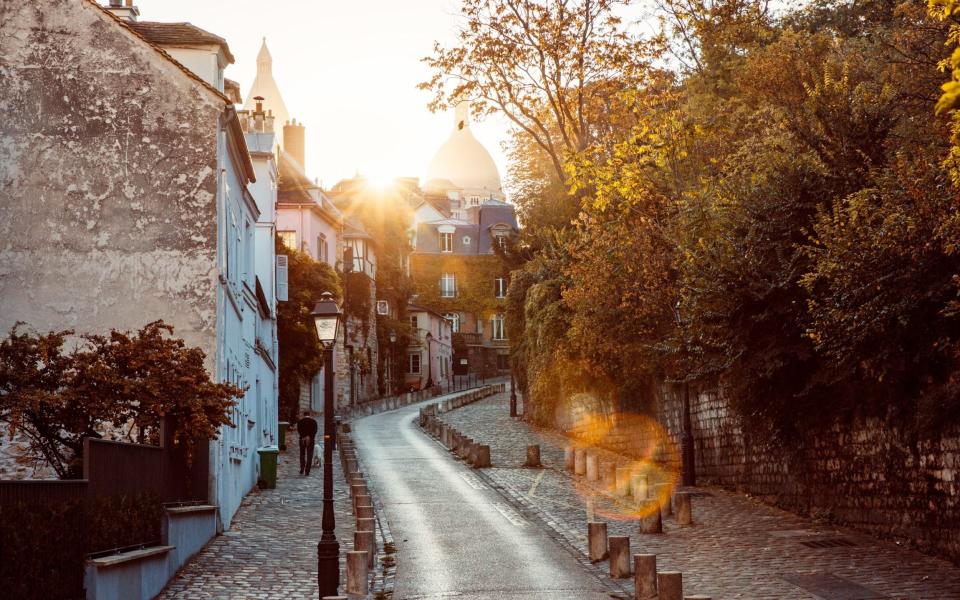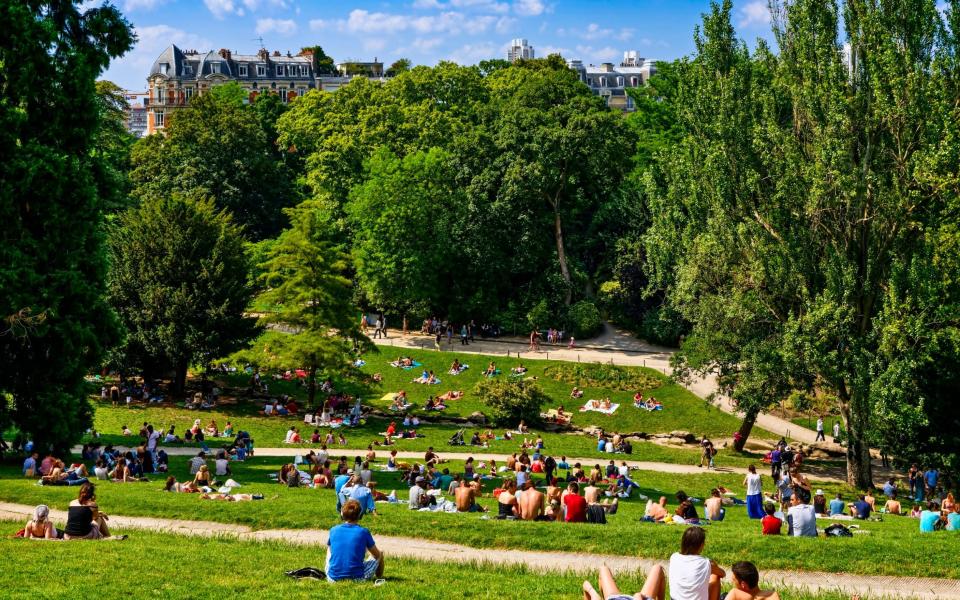Ignore the naysayers – the romance of Paris hasn’t been ruined by socialists

For the second year running, Paris has been named the best place in the world for a city break. In Euromonitor International’s annual index, the French capital racks up heaps of points for “attractiveness and infrastructure” – so why are so many commentators decrying the city’s descent into neglect and disrepair under its long-serving socialist mayor? One of my fellow contributors to this newspaper has even gone as far as describing the “woke” city as “a battered old lady on her way to a dismal care home”.
I have to admit I’m bemused. I’ve lived in Paris for five years, after popping two-and-fro from London for many years before. If the city fell into ruin during that time, I must have missed it.
Perhaps it was while I was picking up a bunch of flowers at my favourite fleuriste. Or maybe it was while I was running through the beautifully maintained Parc des Buttes Chaumont. Failing that, perhaps it was while I got lost on the Left Bank last week and decided to walk home, headphones in, just for the joy of soaking up the Parisian twilight. I guess it could also have been somewhere between that second bottle of wine and the 10-minute taxi ride home along traffic-free streets.
Forget rack and ruin. It’s easy to describe life in Paris in two words: spontaneous, delicious.

Yet the claims being levied against Paris and mayor Anne Hidalgo continue to stack up. Architectural treasures are being ruined by modern conceits, it is said. The streets are piled high with rubbish. Some seem to believe Paris has become a Hogarth-esque horror, complete with leering pickpockets and crumbling buildings.
Hardly.
The root of the problem is a strange sort of nostalgia, which leaves out the city’s actual history in favour of misty-eyed sentimentality. No matter that even the city’s most famous monument was once denounced a modern monstrosity, widely criticised upon completion by Gustave Eiffel for the Exposition Universelle in 1889. Or that the city’s mutinous past spans the guillotine-heavy gore of the Revolution itself to the short-lived Commune. Paris is the city where Édith Piaf sung, Picasso painted and Belle Époque brothels thrived.
How did we end up with the idea that Paris is defined by fancy boulevard cafés and exclusive art fairs, where anyone who actually resembles a struggling artist is kept out by security?
Coffee in Saint Germain hadn’t been chic since Hemmingway’s day. No-one shops on the Champs Elysées. It’s a strange notion that a city, inherently multi-layered and ever-changing, should be preserved forever as a time capsule of one era of its history.

Today, Paris is thriving. Investment is pouring into France, with a record €13.5 billion raised in 2022, according to La French Tech, making it the only European country to see notable growth. Paris itself is increasingly international, and you can find a great omakase as easily as a great omelette. Close suburbs such as Pantin and Montreuil are gradually being incorporated into Parisians’ perception of their city, just as Belleville and Ménilmontant were before them. Paris is slowly embracing its diversity.
Some streets could be cleaner, but I’d rather have a magnificent three-times-weekly market and the mess.
It’s still a city for lovers – the perfect foil for a Valentine’s Day escape. Romance isn’t found at picnics on the Champ de Mars or afternoon strolls through the Tuileries. It’s ordering burgers to the park to watch the sunset, champagne splashed into plastic cups. It’s being stopped in your tracks by surprise glimpses of the Sacré-Coeur from the Grands Boulevards. It’s walking up innumerable flights of stairs to wobbly-floored apartments above hidden courtyards. It’s long summer evenings by the Bassin de la Villette, as the heat finally breaks and pétanque battles get underway.
I fiercely guard my most-loved spots. Wisteria-covered cobbled lanes in the 20th. The jazz club where you get shushed for talking above a whisper (and where you’ll find the most terrifying toilets in Paris). The bistro with the most beautiful Art Deco design and mirror-backed bar but rarely a tourist (OK, you can have that one, it’s Le Chantefable near Gambetta).

I could go on, but if I haven’t won you over yet, Paris might not be the place for you.
In Paris, you live in the very fabric of the city. Grabbing a coffee at the weekend is easily an hour-long affair. Shopping every few days is a pleasure. You walk or cycle everywhere, on streets slowly being reclaimed from car traffic. You eat out often, thanks to the tickets resto handed out by almost every employer to their staff. You watch the match in a bar, not from your sofa. You spend rainy days at the cinema or an exhibition. You rarely sit at home. You live very well on comparatively little.
Sure, some Parisians are leaving. Just as residents started leaving every other big city now remote work has made it possible to surf before breakfast and ski on the weekend. But they’re being pulled by opportunities elsewhere, not driven away.
If and when I leave, it’ll be the constraints of living in a tiny apartment that finally tempt me to make a change, not the richness of Parisian life outside. For tourists, there’s still no city like it.

